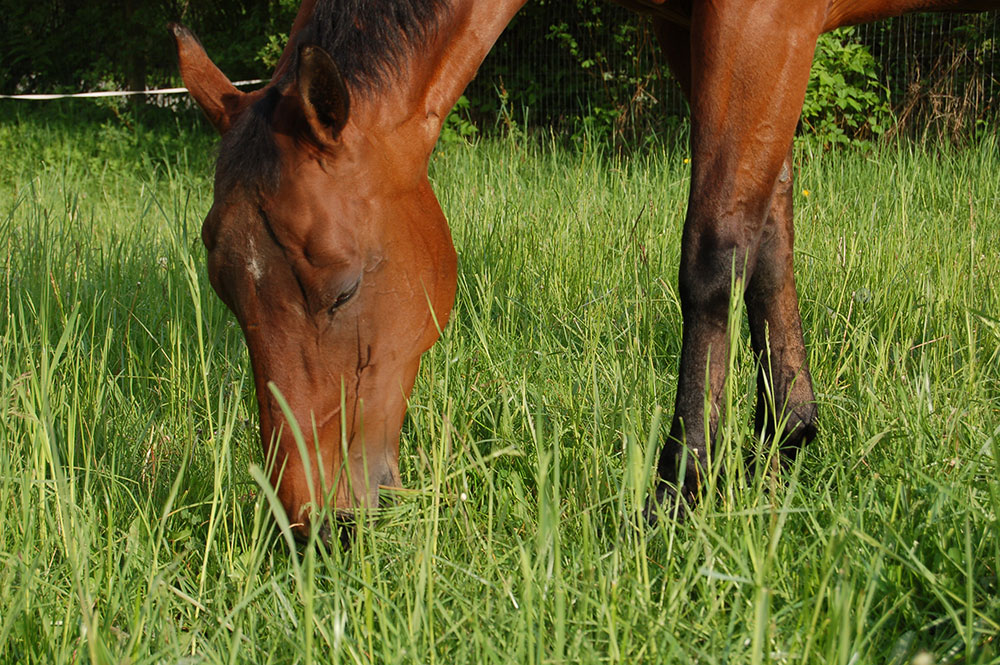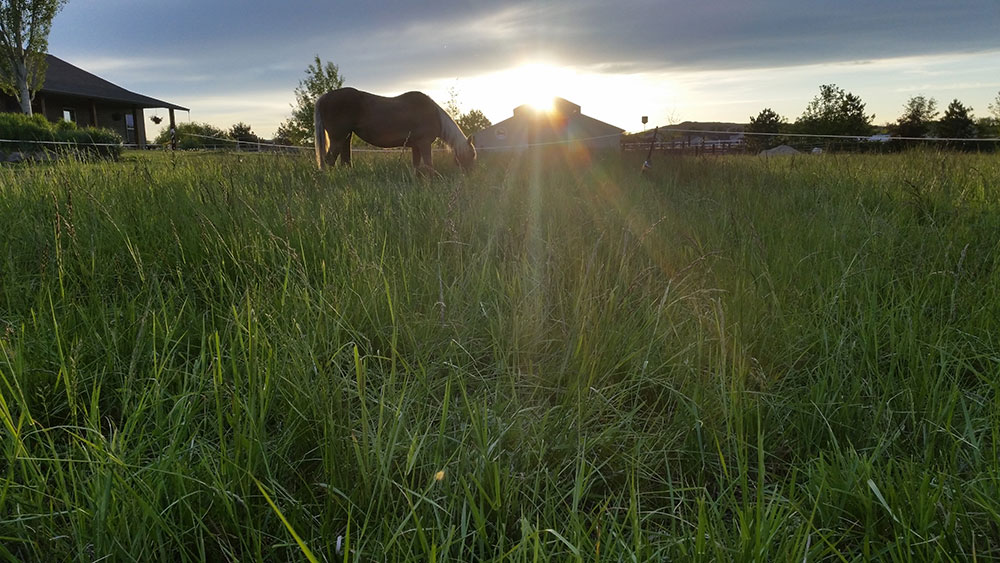
How to Assess Your Horse’s Forage
Learn about 5 key physical indicators of forage quality and how to gather a hay sample and interpret a chemical analysis.
Design and maintain a healthy horse operation

Learn about 5 key physical indicators of forage quality and how to gather a hay sample and interpret a chemical analysis.

Use these tips to make smart mealtime decisions when feeding many types of horses.

Could motion sickness make a horse reluctant to load and cause him to scramble in the trailer? Find out what the research says.

These tips will help you cultivate pastures that support your horse’s health and reduce harmful runoff from your property.

Grass sugar content fluctuates with the time of day, season, and weather. Timing turnout for horses with EMS, IR, or a history of laminitis can help prevent problems.

Researchers think certain sounds might reduce frustration behaviors in stalled horses.

Cultivating healthy soil in your horse’s pastures will help reduce weeds and improve pasture quality. These 4 tips can help you achieve healthy soil on your horse property.

For some horses, overingesting certain grasses can lead to laminitis. Learn more about managing these horses and their pastures.

Learn how allergies happen, how they affect your horse’s body, and how to avoid or treat them.

Summer sores can worsen rapidly without prompt treatment. Find out how to prevent these lesions and explore methods veterinarians use to address them.

Follow the steps in this visual guide to relieve your horse’s clinical signs of insect bite hypersensitivity and prevent future flare-ups. Sponsored by KineticVet.

Cultivating healthy pastures on your horse farm can help remove carbon dioxide from the atmosphere. Here’s how.

Learn what you can do to reduce the carbon footprint of your horse farm.

Find out what conditions, beyond lameness, a veterinarian might uncover during a prepurchase exam.

Learn about 10 common plants, chemicals, organisms, and toxins your horse should never eat.

An equine nutritionist offers advice about soaking beet pulp and ensuring it’s safe for horses to eat.
Stay on top of the most recent Horse Health news with
"*" indicates required fields